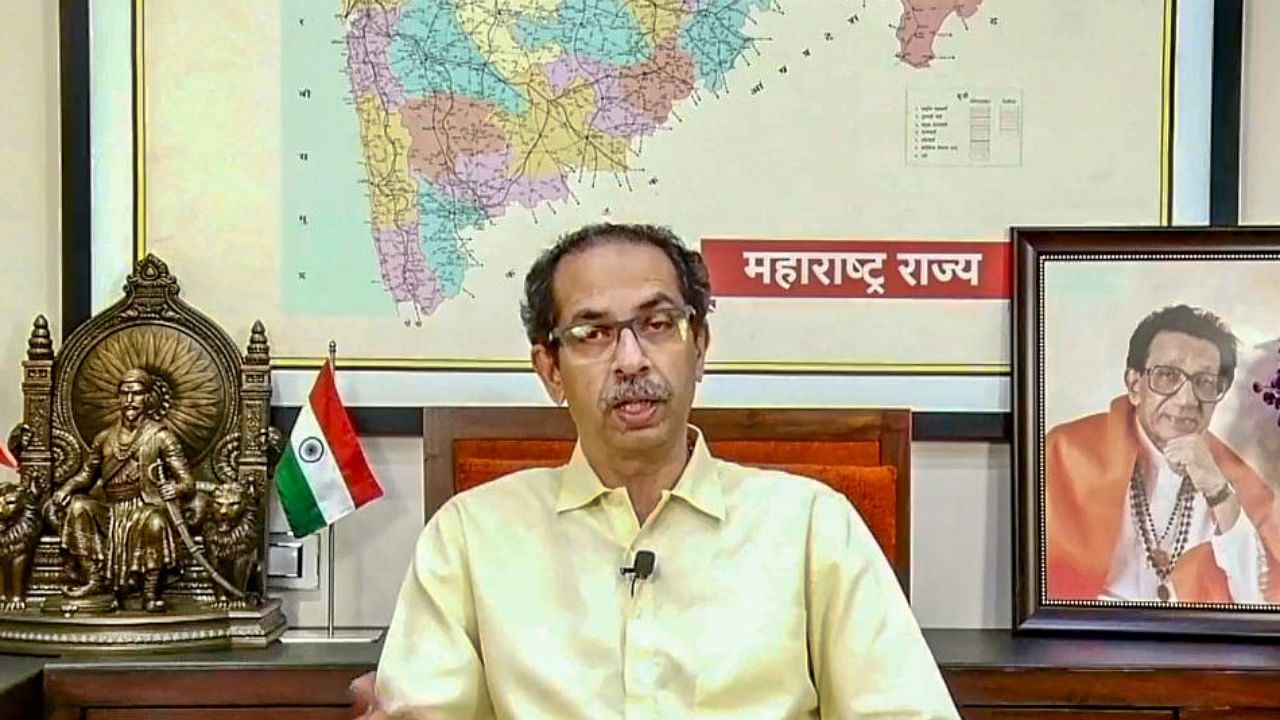
Chief spokesperson Sanjay Raut’s admission that Uddhav Thackeray is no longer in control of his legislators; Eknath Shinde’s claim that he has the weight of more than 40 MLAs behind him; the shaky ground on which the Maha Vikas Aghadi alliance stands on—all these developments put Uddhav Thackeray’s Shiv Sena in a tumultuous spot.
If Shinde’s claim turns true, his camp would be poised to avoid the anti-defection law, the last of the Hail Marys Thackeray might use.
The anti-defection law—applicable to houses of parliament and state assemblies—provides the statutes through which a legislator could be disqualified from being a member of a house or an assembly. The law’s objective is to prevent political defections; it also includes the process to follow if a member of the house leads a petition against a ‘defecting’ member.
The anti-defection law, hence, punishes an individual for leaving one party for another.
The law, however, is not free from loopholes—as history has shown. Even though the law is supposed to ensure political stability—by preventing members from jumping ship—often that hasn’t been attained, and the people involved get away without facing any consequences.
For example, last year in Meghalaya, 12 of 17 Congress MLAs joined the All India Trinamool Congress without any penalisation. In 2019, all six MLAs of the Bahujan Samaj Party in Rajasthan joined the Congress and were not punished. The same year, four out of six Telugu Desam Rajya Sabha MPs joined the BJP—with similar results.
Key exceptions to disqualification: Splits and Mergers
Earlier, if at least one-third of the members of a political party in a particular house or assembly decided to leave together, then those splitting away could not be disqualified under Paragraph 2(1) of the anti-defection law. This portion was however removed after a constitutional amendment in 2003, due to heavy misuse.
For mergers, according to Paragraph 4(2), to be valid, two-thirds of the members of the legislature party (i.e., number of MLAs/MPs the party has) must agree to the merger.
Shinde’s proof against anti-defection
With Shinde’s camp claiming to be the “real Shiv Sena”, speculations are rife that they might either merge with the Bharatiya Janata Party or be identified as a separate political group within the Maharashtra MLC.
A look at Maharashtra state assembly’s numbers
The Legislative Assembly of Maharashtra has 288 members. After the arrest of Anil Deshmukh and Nawab Malik, and the death of Shiv Sena MLA Ramesh Latke, this number is now at 285; which makes 143 the majority mark.
The Maha Vikas Aghadi alliance currently has 152 MLAs—with 55 members of Shiv Sena, 44 members of the Indian National Congress and 53 members of the Nationalist Congress Party. With the additional support of six independent MLAs, the MVA is 158 strong.
This number, however, is subject to change as speculations arise over Shiv Sena’s loss of MLAs. Keeping in mind the recent claims of numbers and strengths, it could be assumed that Thackeray is backed by just 10-15 MLAs.
What could happen from here?
We know that Shinde and his supporters are not resigning. In absence of these resignations, the anti-defection law can only come into play either through a Floor Test or a vote of no confidence in the Uddhav Thackeray government.
Thackeray or any other MLA can petition that certain members have defected, or Shinde and his supporters can write to the Deputy Speaker, claiming two-thirds of Sena’s 55 members and seek protection from the anti-defection law.
If the situation for a no-confidence motion arises, and the rebels do not vote in favour of the MVA, they would still be protected under the merger exception. However, to get his faction recognised as the true face of the Shiv Sena, Shinde would require a ruling from the Election Commission.
The combination of political considerations and calculated moves by both sides, in addition to the anti-defection law being in the spotlight once again, makes the Maharashtra political crisis a waiting game.
Deccan Herald is on WhatsApp Channels| Join now for Breaking News & Editor's Picks